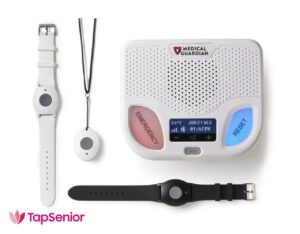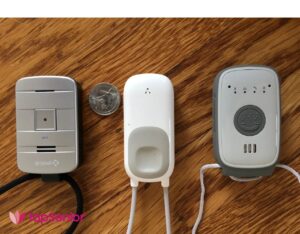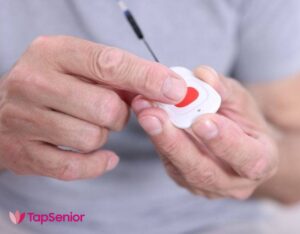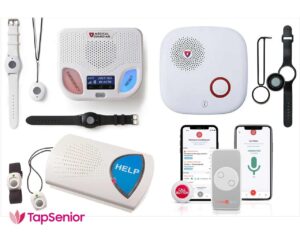Best Medical Alert Systems: A Comprehensive Guide for Seniors and Families
In today’s fast-paced world, ensuring safety and independence for older adults is more important than ever. Choosing the best medical alert systems can provide peace of mind for seniors and their families, especially when unexpected emergencies occur. With advanced technology, reliable monitoring centers, and features like fall detection, GPS tracking, and two-way communication, these systems have become essential tools for senior care. Whether you are looking for an at-home device with landline connectivity or a mobile system powered by cellular networks, the right medical alert solution can make all the difference. In this guide, we will explore the top medical alert companies, their features, pricing, and benefits to help you make the most informed decision.

Why Choose a Medical Alert System?
A medical alert system is designed to connect seniors directly to a 24/7 monitoring center in case of emergencies. By pressing a help button on a pendant, bracelet, or wall-mounted device, users can quickly communicate with trained professionals. This immediate response can be life-saving in situations such as falls, strokes, or sudden health issues.
Entities such as AARP, the National Institute on Aging (NIA), and Mayo Clinic consistently recommend these devices for elderly individuals who live alone or manage chronic health conditions.
Key benefits include:
- Rapid emergency response
- Automatic fall detection
- GPS-enabled location tracking
- Medication reminders
- Two-way voice communication
Features to Consider When Choosing the Best Medical Alert Systems
Not all medical alert systems are created equal. Here are essential features to evaluate:
- Monitoring Centers: Look for systems backed by UL-certified or TMA Five Diamond certified monitoring centers.
- Connection Type: Choose between landline, cellular, or Wi-Fi-enabled devices.
- Fall Detection: Systems with automatic fall detection sensors can notify monitoring agents even if the user cannot press the button.
- GPS Tracking: Essential for active seniors who leave the home regularly.
- Battery Life: Long-lasting batteries reduce the need for frequent recharging.
- Water Resistance: Devices should be safe for use in showers or baths, where falls are most common.
- Cost and Contracts: Compare monthly fees, activation costs, and whether contracts are required.
Top Medical Alert Systems in 2025
Below are some of the most reputable and widely used medical alert companies:
1. Medical Guardian
Medical Guardian is one of the leading providers of personal emergency response systems. Their devices range from in-home units to on-the-go solutions with GPS tracking and fall detection. Features include:
- 24/7 U.S.-based monitoring centers
- Waterproof help buttons
- Cellular and landline connectivity
- No long-term contracts
2. Life Alert
Famous for its slogan, “Help, I’ve fallen and I can’t get up!”, Life Alert has built a strong reputation for reliability. While pricing is generally higher, their monitoring services are considered premium. Key highlights:
- Two-way communication
- 24/7 dispatch centers
- Long-lasting battery backup
- Proven history in the industry
3. Bay Alarm Medical
Bay Alarm Medical offers affordable yet robust solutions. With both at-home systems and mobile GPS-enabled devices, they are a trusted choice among seniors.
- Low monthly fees
- Family caregiver app for real-time updates
- Automatic fall detection available
- Multi-lingual support services
4. MobileHelp
MobileHelp specializes in easy-to-use devices with nationwide cellular coverage. Their wearable devices and touchscreen tablets provide advanced safety features.
- No landline required
- FDA-registered equipment
- Mobile GPS technology
- Affordable monthly plans
5. ADT Health
A well-known name in home security, ADT Health also provides reliable medical alert systems. Their devices integrate with professional ADT monitoring centers.
- Waterproof pendants
- Fall detection technology
- Nationwide coverage
- Bundling options with ADT home security systems
6. Philips Lifeline
Philips Lifeline is among the pioneers in this field, offering advanced fall detection sensors and medication reminder tools.
- 24/7 response centers
- Automatic fall detection with AutoAlert
- GPS-enabled mobile devices
- Strong brand reputation in healthcare
Comparing Costs of Medical Alert Systems
While prices vary, most medical alert systems range between $20 to $50 per month, depending on features and coverage. Key factors influencing price include:
- Type of connection (landline vs. cellular)
- Fall detection add-ons
- GPS tracking
- In-home vs. mobile systems
Some companies like Medical Guardian and Bay Alarm Medical provide free equipment with monthly plans, while others like Life Alert may require upfront fees.
Who Should Use a Medical Alert System?
These systems are ideal for:
- Seniors living alone
- Adults with chronic health conditions (e.g., diabetes, heart disease, arthritis)
- Individuals at risk of falling
- Caregivers who want peace of mind
Organizations such as the Centers for Disease Control and Prevention (CDC) highlight that falls are the leading cause of injury-related deaths in seniors, making fall detection a vital feature.

Future Trends in Medical Alert Technology
The medical alert industry continues to evolve with innovations like:
- AI-powered health monitoring
- Integration with wearables like Apple Watch and Fitbit
- Voice-activated assistants (e.g., Amazon Alexa) integration
- Advanced telehealth services for remote medical consultation
Final Thoughts
Finding the best medical alert system in 2025 means balancing features, costs, and reliability. Whether you prefer trusted providers like Life Alert and Philips Lifeline, or more affordable options such as Bay Alarm Medical and MobileHelp, the ultimate goal is ensuring safety, independence, and peace of mind. By considering factors such as fall detection, GPS tracking, and monitoring center certifications, you can confidently select a system that protects your loved ones.
A well-chosen medical alert system is more than just technology it’s a lifeline for seniors and reassurance for families.



Bài viết liên quan: